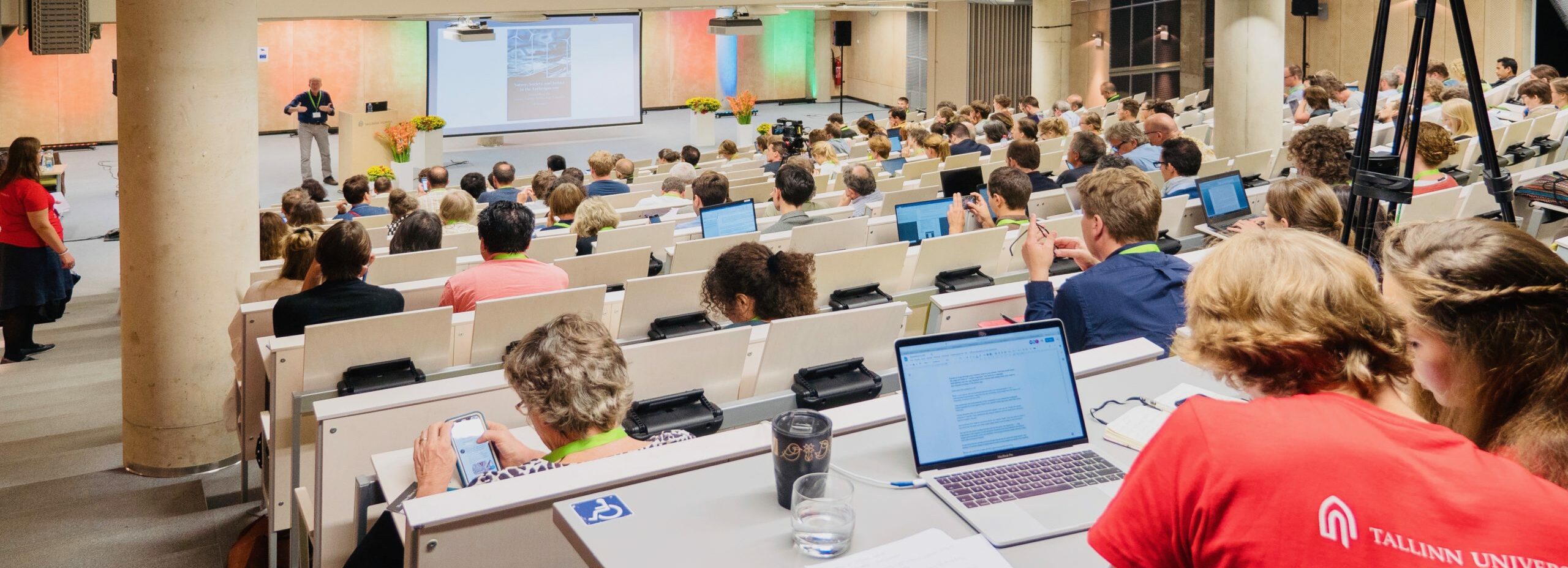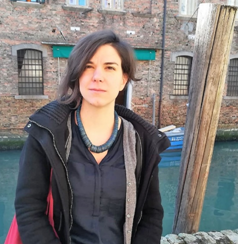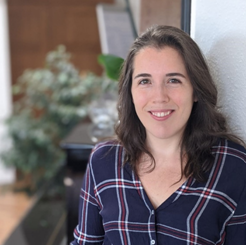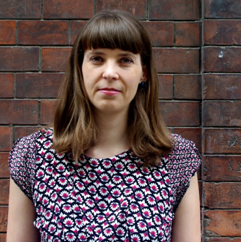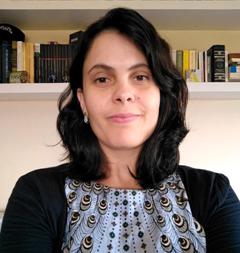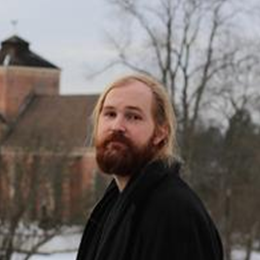-
Roberta Biasillo is an environmental historian and holds a Ph.D. in Early Modern and Modern European History from the University of Bari (Italy).
She works at the Environmental Humanities Laboratory, KTH Royal Institute of Technology in Stockholm (Sweden) in a FORMAS (Swedish Research Council for Sustainable Development) project on climate change, cities and grassroots movements. From September 2019 she will be a Max Weber fellow at the European University Institute in Florence. She has been a researcher at the Italian National Institute for Social Security and a fellow at the LMU – Rachel Carson Center for Environment and Society in Munich (Germany), where she started exploring Italian colonialism and imperialism.
Her research interests include property regimes, territorial and forest issues, natural disasters, modernization, nation-building processes, ecological imperialism. She is also interested in historical theory and environmental humanities research methodologies.
-
Elizabeth Hameeteman is a doctoral candidate in History at Boston University.
Her research interests include sustainable development, environmental law and policy, and all things water. Currently, she is working on a dissertation, titled “Water for a Thirsty World: Desalination, Development, and the Global Quest for Water in the 1950s and 1960s,” that explores the interconnected, sometimes overlapping, efforts of various governmental and non-governmental actors in dealing with global water scarcity in the post-WWII world.
Originally from the Netherlands and now based in Berlin, Elizabeth has a background in Law and American Studies.
She is also the Executive Editor and Founder of Environmental History Now, an online platform that showcases the environment-related work and expertise of graduate students and early career scholars who identify as women, trans and non binary people.
-
Noémi Ujházy is a historical and environmental geographer and PhD candidate in Environmental Sciences at Eötvös Loránd University, Budapest, Hungary.
Her doctoral research focuses on the perception of landscape changes in the Danube-Tisza Interfluve, Hungary, for which she conducted interviews among local stakeholders and analysed historical documents. She aims to explore how environmental knowledge and perception is entangled in the various forms of human-nature relations, and how transformations of landscapes are intertwined with scientific or social-political discourses. During her studies,she has visited the RAS Steppe Institute in Orenburg (Russia); the Environmental Change Institute, University of Oxford (UK); and the Institute of Geography, University of Nottingham (UK). Currently, sheis involved in an interdisciplinary soil microbiome project and in teaching activities. Her future goals include examining the history of environmental sciences in Hungary from an interdisciplinary and transnational perspective.
-
Monique Palma is a PhD in History of Medicine from the University of Porto in Portugal.
To follow several clues, to investigate the sources, to understand what really happened in the past it is for her an amazing work.
A passionate historian, she believes that using History’s scientific methods to understand the past is something crucial to social development.
She was awarded a Master in History by the State University of Maringá in Brazil, where she had also graduated in History.
Then she crossed the Atlantic Ocean to improve her skills, she got her PhD, and currently researches into the field of Environmental History – one of the areas of her greatest interest.
At the moment, she works as a researcher in the ERC project DUNES at Center of History of School of Arts and Humanities of University of Lisbon.
-
Adam Wickberg is a Postdoctoral fellow in media and environmental history at KTH Division of History of Science, Technology and Environment and a visiting scholar at the Max Planck Institute for History of Science in Berlin (MPWIG I) 2020–2022.
His research interests include media theory, digital cultures, AI, environmental humanities and posthumanities, as well as the history of climate change knowledge and the Anthropocene. He has published widely on issues of media history and theory, including digital issues, and the relation between media infrastructures, environment and knowledge, in contemporary expressions like the Anthropocene as well as the deeper historical roots of the eco-crisis. His book Pellucid Paper: Poetry and Bureaucratic Media in Early Modern Spain was published by Open Humanities Press 2018 in the series Technographies. He is a member of the Environmental Humanities Lab, The Posthumanities Hub and an external member of the Portuguese ERC project RUTTERS: Making the World Global. He has worked as an editor of journals of literature and contemporary art and is currently co-editing a special issue on Environing Media which brings together leading scholars of media theory and environmental history to work out a new theory for how media creates environments. He is also engaged in developing research on the history of media and climate change epistemologies as well as the impact of AI and automation on environmental data. He is currently working on a three year project funded by the Swedish Research Council called PLUS ULTRA which investigates the environmental media epistemologies and infrastructures of the Spanish Colonization of Americas 1570-1620. This project aims at explaining how the first Globalizaton of the Early Modern Age depended on a systematization of media formats that environed the Americas in Western epistemology.
-
Who we are
In recent years the environmental humanities have evolved in new and exciting directions, due largely to the democratisation of information and new digital communication technologies. Social media channels, smartphones and the ease of online communication have also helped to advertise the ideas of emerging scholars in the growing field of environmental history. Inspired by the success of other academic societies in supporting their early-career members, such as the Network in Canadian History and Environment (NiCHE), the American Society for Environmental History (ASEH) Grad Caucus and New Scholars network, and the Tensions of Europe Network (ToE), the Board of the European Society for Environmental History (ESEH) decided to initiate its own Next Generation Action Team (NEXTGATe), which was established in June 2018.
Read more: https://www.ingentaconnect.com/content/whp/eh/2018/00000024/00000004/art00011#
Latest news
- Call for Papers: Third Baltic Conference on the Environmental Humanities and Social Sciences (BALTEHUMS III)
- Call for Conference Papers Between the Local and the Global: Unpacking Environmental History of Ukraine Centre for Advanced Study, Sofia, Bulgaria, 25-26 September 2024
- CfP: Cultures of Automobility, University of Konstanz (Germany), 10-12 October 2024
- Job Opportunities: ERC Starting Grant project WHEP
- Postdoctoral fellowship in Environmental History, ERC StG 2023 project INWOOD
